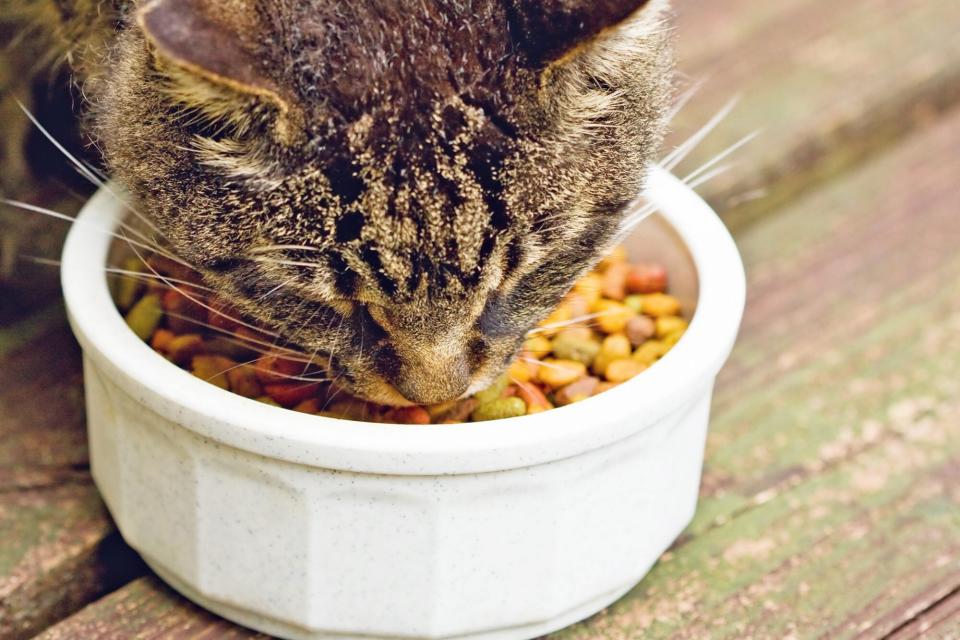Just Like Us, Cats Would Rather Not Work for Their Food, a New Study Suggests
You might look at the results of this recent study and conclude cats are lazy. But you're wrong! It proves domesticated cats are smart and won't fall for our games.
Researchers at the University of California, Davis gave 17 cats a choice: Work on a food puzzle to collect their food or simply eat it from a tray. Over the 10 trials, the cats overwhelmingly preferred to eat from the open tray. It was most often the cats' first choice when approaching both, and they consumed much more food from the trays than the puzzles.

epantha / Getty
OK, that seems obvious. But it actually runs contrary to what many animals like to do—work for their food through a process called contrafreeloading.
"There is an entire body of research that shows that most species including birds, rodents, wolves, primates—even giraffes —prefer to work for their food," lead author Mikel Delgado, a cat behaviorist and research affiliate at the UC Davis School of Veterinary Medicine, said in a news release. "What's surprising is out of all these species, cats seem to be the only ones that showed no strong tendency to contrafreeload."
Of course, this doesn't mean cats won't work for their food. We know they hunt. Plus, all the cats in the study were introduced to the food puzzles—and ate from them—before the experiment began. It's just when they were given a choice, most of them seemed to say, "But there's food right here."
Four of the 17 cats in the experiment appeared to contrafreeload, but they also simply ate most of the food available, whether from the tray or puzzle. It seems pure hunger may have trumped contrafreeloading instincts, the authors wrote.
There are several potential explanations—the cats were all spayed or neutered and domesticated, for example—the authors explore. Delgado even wondered if the puzzles weren't enough to stimulate the cat's instinctive hunting behavior. It's not like you have to ambush or pounce on a food puzzle.
RELATED: 7 Interactive Toys to Enrich Your Cat's Life
But—BUT—you should still keep those food puzzles on deck for your cats and kittens. Two years ago, Delgado's research showed that the puzzles can provide valuable mental and physical stimulation. Just make sure they can do it, first.
"When starting out with a food puzzle, it's important to make it easy for the cat at first so they can figure it out and not become frustrated," Delgado said in 2019. "At the same time, you want to make sure it's challenging enough that it provides some activity and mental stimulation."

